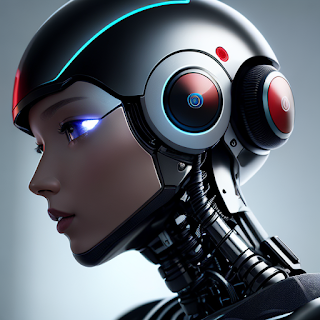The Rise of Artificial Intelligence: Can it Replace Humans?
Artificial Intelligence (AI) has made significant strides in recent years, sparking debates about its potential to replace human workers in various industries. This article delves into the fascinating world of AI and explores its capabilities, limitations, and the extent to which it can potentially replace human labor. While AI has the power to automate certain tasks and improve efficiency, the human touch remains invaluable in many aspects of work and life.
The Power of Artificial Intelligence:
AI is a branch of computer science that aims to develop intelligent machines capable of performing tasks that typically require human intelligence. Machine learning, natural language processing, and neural networks are some of the key technologies driving AI advancements.
Automation and Efficiency:
AI excels at automating repetitive and mundane tasks, increasing productivity and efficiency. It can process large amounts of data, detect patterns, and make data-driven decisions at a scale beyond human capabilities. Industries like manufacturing, logistics, and customer support have witnessed significant benefits from AI-driven automation.
Complex Decision-Making and Creativity:
Despite advancements, AI struggles with complex decision-making processes that involve emotions, ethical considerations, and contextual understanding. Creative endeavors, such as art, music, and storytelling, also require human ingenuity and emotional intelligence that AI cannot fully replicate.
Collaborative Intelligence:
Rather than replacing humans, AI has the potential to augment human capabilities. By leveraging collaborative intelligence, humans and AI systems can work together, combining the strengths of both to achieve superior results. AI can assist professionals in fields like medicine, law, and research, providing valuable insights and streamlining workflows.
The Human Touch:
Certain tasks require human empathy, intuition, and nuanced judgment. Industries such as healthcare, counseling, and customer service rely heavily on human interaction and emotional connection. The ability to understand complex emotions, adapt to unique situations, and provide personalized care remains a distinct advantage of human workers.
Ethical Considerations and Trust:
AI raises important ethical questions regarding privacy, security, and bias. The development and deployment of AI systems must prioritize transparency, fairness, and accountability to build trust between humans and AI technologies.
The Future of Work:
While AI may automate specific job functions, it is more likely to reshape work rather than replace it entirely. New job roles and skill requirements will emerge as humans adapt to working alongside intelligent machines. Developing skills in areas such as creativity, emotional intelligence, complex problem-solving, and critical thinking will become increasingly valuable.
Artificial Intelligence holds immense potential to transform industries, automate tasks, and augment human capabilities. However, the unique qualities possessed by humans, including empathy, creativity, and complex decision-making, cannot be replicated by AI. Achieving a balance between the power of AI and the irreplaceable human touch is key to unlocking the true potential of this groundbreaking technology. As we move forward, it is essential to embrace the collaborative partnership between humans and AI, leveraging the strengths of both to shape a better future.
